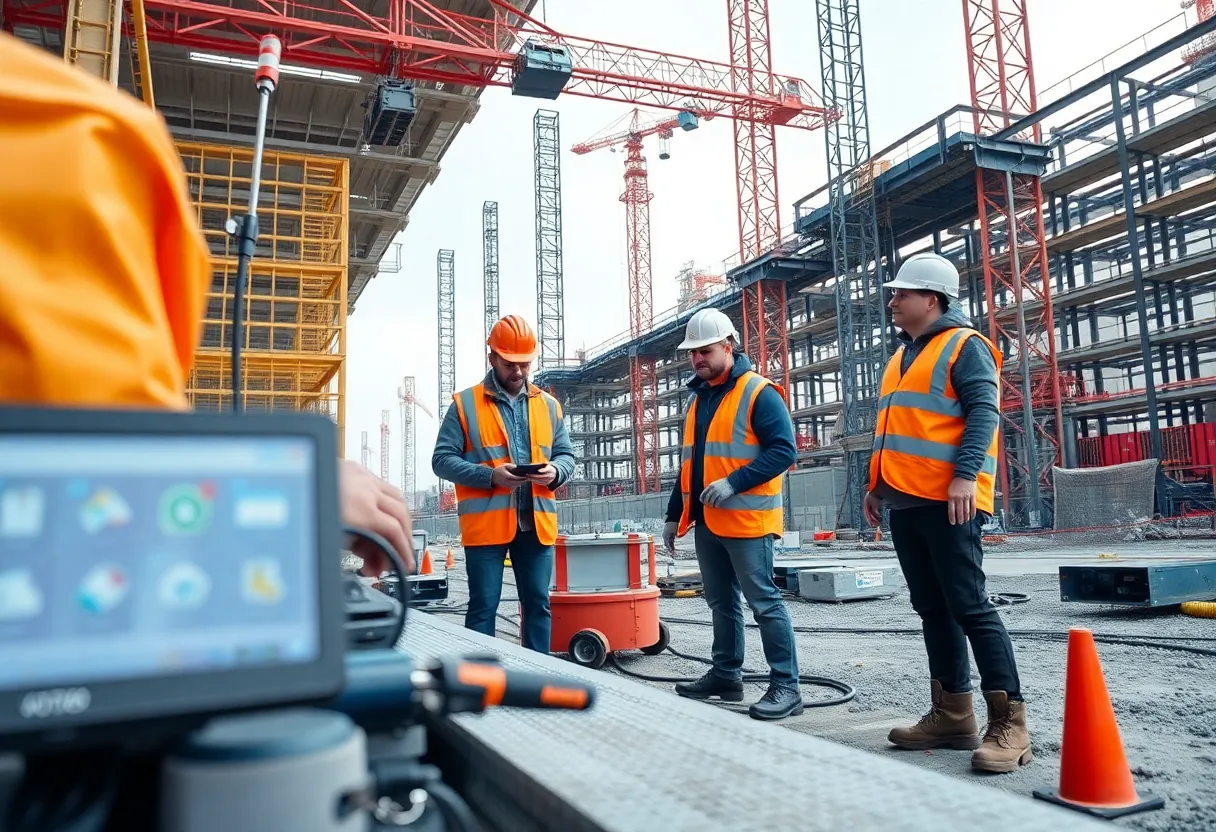News Summary
The construction industry faces significant challenges in project delivery, with productivity decreasing by around 40% over the years. Budget overruns and delays are common, largely due to inaccurate cost estimation during the project planning stage. The need for accurate and timely data is emphasized, as it aids in decision-making and risk management. Innovations like AI and real-time monitoring solutions are highlighted as key to improving forecasting and project outcomes in an evolving market.
Declining Construction Productivity Calls for Improved Data Management
The construction industry continues to face the significant challenge of delivering projects on time and within budget, a struggle that has persisted for decades. Despite ongoing efforts to enhance efficiency, productivity levels in construction have decreased by about 40% over the years. This trend raises concerns as budget overruns and delays remain prevalent, highlighting a critical issue regarding the complexities of project execution.
Estimating Challenges Lead to Financial Shortfalls
A key factor contributing to budget overruns is found during the estimating phase, which is often impacted by variables such as uncertainties and incomplete information. Research indicates that ineffective cost estimation is a primary reason for project overruns. Pre-construction teams struggle with estimating costs accurately, hindered by fluctuating material prices, unpredictable labor markets, and specific site conditions.
The Importance of Accurate Data
To combat these issues, accurate and timely project data is essential. This data plays a critical role in reducing uncertainty and enhancing decision-making within construction teams. Contractors can significantly enhance the accuracy of their construction estimating processes through efficient data collection and real-time analysis throughout the entire project lifecycle.
Modern Solutions for Project Management
Modern jobsite monitoring solutions now provide continuous observation, generating insights on project progress, resource utilization, and potential problems. By making proactive adjustments to project timelines and procurement strategies based on real-time data, teams can mitigate risks effectively. This shift towards a more data-driven approach emphasizes the need for contractors to stay adaptable and responsive to changing conditions.
The Role of Artificial Intelligence
Artificial Intelligence (AI) technology has emerged as a powerful tool for analyzing vast datasets, increasing accuracy and reliability in budget management and forecasting. By leveraging AI, teams can analyze extensive historical and real-time data, revealing patterns and insights that contribute to early risk identification.
AI capabilities allow for the prediction of project scenarios while providing pro-active suggestions to help avoid overruns and delays. This technology is being viewed as a vital component in enhancing project outcomes, enabling construction teams to embrace real-time monitoring, data analytics, and AI-driven estimation.
Empowering Teams to Overcome Challenges
Integrating these advanced technologies allows for improved forecasting accuracy and proactive issue management, empowering teams to deliver projects consistently on time and within budget. A properly managed approach to project data helps to diminish unforeseen disruptions and cost overruns, fostering a more efficient and effective construction environment.
The Need for Technological Integration
For the construction industry to regain its footing, a shift toward greater efficiency and productivity is paramount. This involves a commitment to integrating advanced technologies into daily operations. Accurate collection of data on project costs, material usage, workforce requirements, and timelines is essential for effective project management.
Bouncing back from past challenges requires companies to find a balance between leveraging human expertise and adopting technological advancements. Training and adapting to new technologies, like AI and automation, are crucial to overcoming resistance from teams used to traditional methodologies.
Weighing Costs Against Benefits
While the initial costs associated with implementing new systems can seem daunting, the long-term benefits and efficiencies gained often outweigh these concerns. Regular audits can help maintain a balance between automation and human oversight, ensuring optimal results within construction projects.
As the construction industry navigates its path forward, embracing a blend of innovative technologies and skilled personnel presents the opportunity for sustained growth and competitiveness. By focusing on data-driven decision-making processes and real-time monitoring, the sector can finally tackle the recurring issues of delays and budget overruns that have long plagued its progress.
Deeper Dive: News & Info About This Topic
Additional Resources
- ENR: Leveraging Project Data to Supercharge Construction Estimating
- G2: Best Construction Estimating Software
- Autodesk: AI in Estimating
- McKinsey: AI Power Expanding Data Center Capacity
- Business.com: How Virtual Reality is Changing Construction
- Wikipedia: Construction Industry
- Google Search: Construction Estimating
- Google Scholar: Construction Productivity
- Encyclopedia Britannica: Construction Industry
- Google News: Construction Technology
Author: Construction FL News
The FLORIDA STAFF WRITER represents the experienced team at constructionflnews.com, your go-to source for actionable local news and information in Florida and beyond. Specializing in "news you can use," we cover essential topics like product reviews for personal and business needs, local business directories, politics, real estate trends, neighborhood insights, and state news affecting the area—with deep expertise drawn from years of dedicated reporting and strong community input, including local press releases and business updates. We deliver top reporting on high-value events such as the Florida Build Expo, major infrastructure projects, and advancements in construction technology showcases. Our coverage extends to key organizations like the Associated Builders and Contractors of Florida and the Florida Home Builders Association, plus leading businesses in construction and legal services that power the local economy such as CMiC Global and Shutts & Bowen LLP. As part of the broader network, including constructioncanews.com, constructionnynews.com, and constructiontxnews.com, we provide comprehensive, credible insights into the dynamic construction landscape across multiple states.





